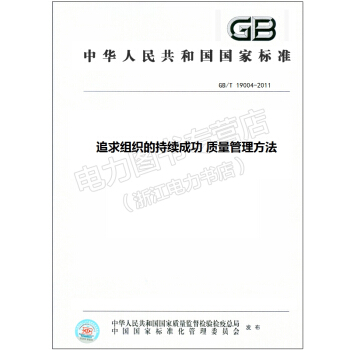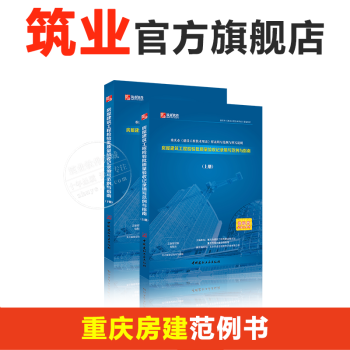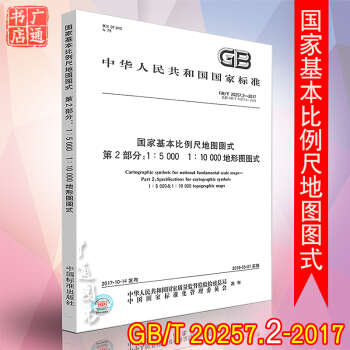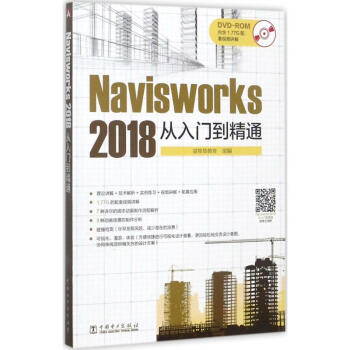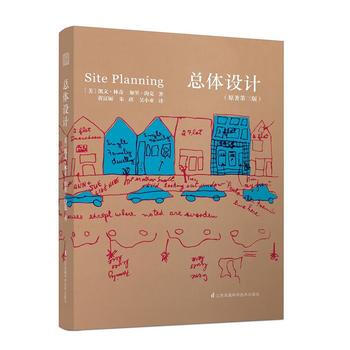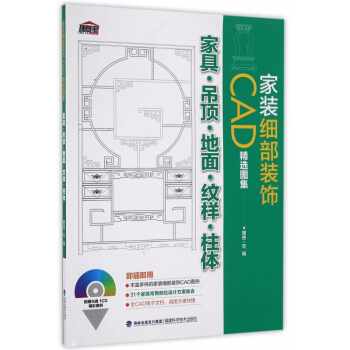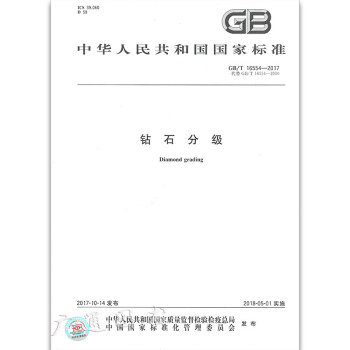

具体描述
| 建筑业企业资质管理规定 | ||
| 定价 | 35.00 | |
| 出版社 | 中国建筑工业出版社 | |
| 版次 | B1 | |
| 出版时间 | 2008年09月 | |
| 开本 | 32 | |
| 作者 | ||
| 装帧 | 平装 | |
| 页数 | 320 | |
| 字数 | 275000 | |
| ISBN编码 | 1511217196 | |
建筑业企业资质管理规定
- 作者:中国人民共和国建设部发布
- 版次:第1版
- 出版时间:2008-09
- 开本:32开 页数:320页 装帧:平装
- 图书分类:法律法规与标准规范单行本
- ISBN:1511217196
- 征订号:17196
- 出版单位:中国建筑工业出版社
- 定价:35.00
【内容简介】本书内容为建设部新发布的建筑业企业资质管理方面的规定和标准,包括《建筑业企业资质管理规定》、《建筑业企业资质管理规定实施意见》、《施工总承包企业特级资质标准》、《建筑业企业资质等级标准》等4项内容。【读者对象】本书适用于建筑行业和企业管理人员。【图书目录】建筑业企业资质管理规定
建筑业企业资质管理规定实施意见
施工总承包企业特级资质标准
建筑业企业资质等级标准。
用户评价
在建筑行业摸爬滚打多年,我越来越意识到,一个企业要想在激烈的市场竞争中站稳脚跟,除了过硬的技术和良好的信誉,合规的资质管理更是必不可少。《建筑业企业资质管理规定》这本书,正是我一直期待的那本能够深入浅出、切实指导企业进行资质管理的“案头宝典”。 我非常希望能在这本书中找到关于“企业规模”和“技术装备”的具体量化标准。对于不同资质等级,企业在注册资本、固定资产、专业设备等方面的要求是如何界定的?书中是否能提供一些实际案例,展示企业如何通过合理的资产配置和设备采购,来满足资质申报和升级的需求?例如,对于一些专业性较强的工程,如特种工程,在技术装备方面的要求是否更加严苛?书中是否能对这些特殊情况进行详细的解读? Furthermore, I am keen to understand the nuances of the "principal personnel" requirements. The book should provide a detailed breakdown of the qualifications, experience, and certifications required for key technical and managerial staff. This should go beyond mere numbers, delving into the qualitative aspects – how to assess the competency of these individuals, and how to effectively document their expertise. For instance, how does one prove the validity and relevance of a professional's experience, especially in specialized fields? I am also particularly interested in the section of the book that addresses the dynamic aspects of qualification management. How does one navigate the process of qualification renewal, upgrade, and diversification? What are the common challenges faced during these processes, and what are the best practices to overcome them? The book should offer practical advice on how to proactively manage the lifecycle of a company's qualifications, ensuring continuous compliance and growth. In addition, I hope the book sheds light on the implications of regional variations in qualification assessment and enforcement. Are there significant differences in how the regulations are applied across different provinces or cities in China? If so, how can companies operating in multiple regions effectively manage these disparities? The book should also offer insights into the broader regulatory environment impacting construction enterprises. This could include the interplay between qualification requirements and other aspects of business operations, such as safety regulations, environmental standards, and contract management. Understanding these interconnections is crucial for holistic compliance. Moreover, I believe a crucial aspect of this book would be its emphasis on the ethical and legal dimensions of qualification management. How can companies foster a culture of integrity to prevent fraudulent practices such as qualification trading or subcontracting? The book should not only state the rules but also provide guidance on building a robust compliance framework. Finally, I hope the book’s language is accessible, avoiding overly legalistic jargon, and that it employs practical examples and visual aids to facilitate understanding. The goal is to empower readers with the knowledge and tools to confidently manage their company's qualifications.
评分在建筑行业从业多年,我深切体会到资质管理的重要性,它不仅是企业承接工程的“敲门砖”,更是企业实力和信誉的“试金石”。近期,我一直在寻找一本能够系统、深入地解读《建筑业企业资质管理规定》的书籍,以期能更准确地把握行业动态,提升企业竞争力。 我期望这本书能够提供一份详尽的“资质地图”,清晰地勾勒出不同资质类别、不同等级的申报条件、审批流程以及相关的法律法规依据。例如,对于特级、一级、二级、三级资质,分别在企业资产、主要人员、技术装备等方面有哪些具体的要求?书中能否提供图表化的对比,让读者一目了然?同时,对于一些专业性较强的资质,例如消防设施工程、防水防潮工程、起重设备安装工程等,书中是否能有针对性的解读,并提供实际案例分析? 尤其吸引我的是,在当前的经济形势下,建筑业资质管理也在不断地优化和调整。《建筑业企业资质管理规定》的解读,如果能深入分析这些政策调整背后的逻辑,以及它们对企业可能产生的影响,那将极具参考价值。例如,随着国家对建筑行业“放管服”改革的深入推进,资质审批的流程是否有所简化?企业在资质申报过程中,又有哪些新的注意事项? 我更关注的是,书中能否就企业在实际申报过程中可能遇到的“疑难杂症”提供解决方案。例如,如何有效地处理人员职称的有效性问题?如何确保申报材料的完整性和准确性?在与审批部门沟通时,有哪些值得注意的细节?对于一些历史遗留问题,例如企业并购重组后的资质承继问题,书中是否能提供明确的指导意见? 而且,建筑企业的发展并非一蹴而就,资质升级和维护是企业长期发展的重要战略。《建筑业企业资质管理规定》的解读,如果能为企业提供一份“资质升级攻略”,分析不同等级资质的优势和劣势,以及企业在不同发展阶段应该如何进行资质规划,那就更加有益。书中是否会介绍一些成功的资质升级案例,并剖析其背后的成功经验? 我坚信,合规经营是建筑企业生存和发展的生命线。资质管理是合规经营的重要组成部分。《建筑业企业资质管理规定》的解读,应该能够帮助企业深刻认识到这一点,并警示企业远离资质造假、挂靠等违法违规行为。书中是否能提供关于如何建立健全企业内部资质管理体系的建议,以确保企业资质的合规性? 除此之外,在项目招投标环节,资质是至关重要的“通行证”。这本书如果能提供关于如何根据项目需求选择合适资质、如何进行联合体投标的策略,那将大大提升企业的市场竞争力。 我希望这本书的语言风格能够通俗易懂,避免晦涩难懂的法律术语,并辅以大量的案例分析和图表,让读者能够轻松理解并学以致用。 总而言之,我期待这本书能够成为建筑行业从业者必备的“资质宝典”,它不仅能解答我心中的疑惑,更能为企业的发展提供方向和动力。
评分我最近翻阅了市面上不少关于建筑业企业资质审批的参考资料,然而,我一直寻觅的是一本能够深入剖析《建筑业企业资质管理规定》背后逻辑和实践细节的书籍。这本书,顾名思义,应该是一本体系完整、条理清晰、对我们建筑业从业者而言具有极高参考价值的宝典。我期望它能像一位经验丰富的老前辈,循循善诱地指引我们理解这项至关重要的制度。 首先,我期待这本书能够详细解读《规定》的每一个章节、每一条内容。不仅仅是简单地罗列条文,更重要的是能够将其置于整个建筑行业发展的宏观背景下进行阐述。例如,为何要设定特定的资质等级?这些等级的划分背后蕴含着怎样的行业发展规律和风险控制考量?书中能否举例说明不同资质等级对应着的工程类型、项目规模以及企业能力要求?对于企业而言,了解这些深层原因,才能更精准地定位自身发展方向,合理规划资质升级的路径,避免盲目追求数字上的增长而忽略了核心竞争力的培养。 其次,对于初创型建筑企业而言,如何跨越“零资质”到“初步资质”的鸿沟,无疑是他们最关心的问题。《建筑业企业资质管理规定》的解读,应该能为他们提供详尽的操作指南。书中是否会详细介绍申报所需的基本条件,包括注册资本、净资产、专业技术人员数量及职称、技术装备等?对于这些硬性指标,是否存在一些“潜规则”或容易被忽视的细节,这本书能否一一揭示?例如,人员的社保证明、职称证书的有效性、设备的发票和产权证明等,这些看似琐碎但又至关重要的环节,往往是企业申报过程中的“绊脚石”。一本好的参考书,应该能够将这些“绊脚石”一一移除,为企业铺平道路。 此外,对于已经拥有一定资质的企业,如何保持资质的有效性、如何进行资质升级和增项,也是日常经营中的重要课题。我期望《建筑业企业资质管理规定》的解读书中,能够提供这方面的深度分析。例如,企业在日常经营中,需要注意哪些事项才能避免资质被动态调整或撤销?在进行资质升级时,又需要哪些额外的准备和证明材料?书中是否会提供一些成功案例的分析,剖析这些企业是如何通过科学的管理和持续的投入,最终实现了资质的跨越式发展? 特别值得一提的是,建筑业资质管理规定,并非一成不变。随着国家政策的调整和行业发展趋势的变化,这些规定也会随之更新。《建筑业企业资质管理规定》的解读,如果能够兼顾历史沿革和未来趋势,无疑会更具前瞻性。书中是否会梳理历年来资质管理规定的重要修订节点,并分析这些修订对行业产生的影响?对于即将出台或可能出台的新规,书中是否能够提供一些基于现有信息和行业分析的预测性解读,帮助企业提前布局,做好应对? 在当前的建筑市场环境中,合规经营是企业生存和发展的基石。而建筑企业资质,正是合规经营的重要体现。《建筑业企业资质管理规定》的解读,应该能够帮助企业深刻认识到合规经营的重要性,以及资质管理在其中扮演的角色。书中是否会强调资质造假、挂靠等行为的严重后果,并提供合法的、可持续的资质管理方案?通过对这些问题的深入探讨,有助于引导企业树立正确的经营理念,避免走弯路。 我特别关注的是,在实践操作层面,《建筑业企业资质管理规定》的落地过程中,可能会遇到哪些常见的问题和挑战。例如,不同地区在资质审批尺度上是否存在差异?申请过程中,与审批部门的沟通有哪些技巧和注意事项?对于一些技术性较强或行业特有的资质要求,书中是否能提供更具象化的解读和案例说明?我希望这本书能够成为一本“实战手册”,而不仅仅是理论的堆砌。 这本书对于项目招投标环节也应该具有重要的指导意义。在参与招投标项目时,企业资质是硬性门槛。书中能否详细阐述不同类型工程的资质要求,以及企业如何根据自身资质情况,精准选择和参与投标?对于一些复杂项目,例如涉及多项专业资质的联合体投标,书中是否能提供相关的经验和建议? 除了硬性的资质要求,企业的软实力,例如企业文化、管理团队的专业性、科技创新能力等,在资质评审和企业发展中也扮演着越来越重要的角色。《建筑业企业资质管理规定》的解读,是否能引申到对这些软实力的提升建议?通过软硬实力的结合,企业才能真正获得市场认可。 当然,一本优秀的参考书,其语言风格也至关重要。我期望《建筑业企业资质管理规定》的解读,语言通俗易懂,逻辑清晰,结构合理,避免使用过多的专业术语,或者对专业术语进行恰当的解释。排版上,也应该清晰明了,方便查阅。 最后,这本书如果能提供最新的政策解读、申报流程优化建议、以及可能遇到的风险预警,将是极为宝贵的。我非常期待能够通过阅读这本书,系统地掌握建筑业企业资质管理的方方面面,从而更好地指导企业的实践,规避风险,实现可持续发展。
评分在建筑行业这个日新月异的领域,企业资质管理一直是让我头疼的问题。我亟需一本能够提供专业指导、解决实际困难的《建筑业企业资质管理规定》解读。我期望它能像一位经验丰富的向导,带领我穿越资质管理的“丛林”。 我非常希望这本书能够深入剖析“技术装备”这一项考核指标。对于不同的资质等级,企业在专业设备、检测仪器、施工机械等方面的要求有哪些具体差异?书中是否能提供详尽的设备清单,并指导企业如何购置、维护和管理这些关键的生产力工具?对于一些新兴的工程技术,例如BIM技术、装配式建造技术等,是否会对企业的技术装备提出新的要求? Furthermore, I am eager to understand the intricacies of the "project experience" requirement. This often involves demonstrating a track record of successfully completed projects that align with the desired qualification category. The book should guide companies on how to effectively document their project history, highlight key accomplishments, and present evidence of their competence in managing and executing various types of construction works. This might include advice on creating detailed project portfolios and quantifying project outcomes. I am also keen to explore the book's insights into the relationship between corporate governance and qualification management. How does a company's internal organizational structure, its adherence to ethical business practices, and its overall management philosophy influence its qualification status? The book should emphasize the importance of a strong governance framework in ensuring sustained compliance and credibility. Moreover, I believe the book should offer practical advice on how to prepare for and navigate qualification audits and inspections. What are the common areas of scrutiny during these assessments, and what steps can companies take to ensure they are well-prepared? The book should provide guidance on documenting evidence, presenting information clearly, and responding effectively to inquiries from regulatory bodies. The discussion on qualification management should also extend to the competitive landscape. How does a company's qualification status influence its ability to secure contracts, form strategic partnerships, and compete effectively in the market? The book should offer insights into how to leverage qualifications as a strategic advantage. The language should be clear, professional, and actionable, with a strong emphasis on practical application. The inclusion of illustrative examples, case studies, and perhaps even templates for key documentation would significantly enhance the book's utility. In conclusion, I am looking for a comprehensive guide that goes beyond a mere recitation of the "Construction Enterprise Qualification Management Regulations." I need a resource that provides practical strategies, expert advice, and actionable insights to help construction enterprises successfully manage their qualifications, thereby fostering growth, ensuring compliance, and strengthening their market position.
评分最近在建筑行业混,深感资质管理之复杂,犹如迷宫。我一直在寻找一本能够点亮前路、指引方向的明灯,而《建筑业企业资质管理规定》这本书,恰恰是我期望中的那一束光。这本书,应该能够深刻地解答我心中关于建筑企业资质的种种疑问,帮助我理解其背后的逻辑,掌握其精髓,从而更好地应对市场挑战。 我最看重的是,这本书能否对《规定》中的各项条款进行细致入微的解读,并且能结合实际案例,让抽象的条文变得生动形象。比如,对于“净资产”这一项,具体的计算方法和核算标准是什么?在申报过程中,哪些类型的资产会被计入净资产,又有哪些会被排除?书中能否提供一些实际操作中的案例,展示企业如何合理地规划和准备净资产,以满足资质要求?同样,对于“专业技术人员”的数量和职称要求,书中能否具体分析不同资质等级下对各类专业技术人员的具体需求,以及如何有效管理和证明这些人员的资质? 此外,建筑企业在发展过程中,资质的维护和升级是绕不开的话题。我希望这本书能提供详尽的指导,帮助企业了解资质动态管理的具体要求,以及如何制定有效的资质升级和增项策略。书中是否会分析不同资质等级在工程项目承接上的区别,以及企业在选择升级方向时应该考虑哪些因素?对于那些已经具备一定资质的企业,如何通过优化管理、提升技术能力来为资质升级打下坚实基础,这本书应该能够给予有价值的建议。 更重要的是,建筑业市场瞬息万变,相关政策法规也经常调整。《建筑业企业资质管理规定》的解读,如果能够兼具前瞻性,分析未来政策可能的发展趋势,并为企业提供前瞻性的应对方案,那就更加难能可贵了。例如,国家在推动行业转型升级的过程中,对企业资质的要求是否会发生变化?一些新兴的工程领域,例如绿色建筑、装配式建筑等,对企业资质又有哪些新的要求? 我坚信,一个企业想要在建筑市场立足,合规经营是前提。而资质管理,正是合规经营的重中之重。这本书应该能够深刻剖析资质造假、挂靠等行为的严重后果,并引导企业走上合法合规的经营之路。书中是否会提供关于如何建立健全企业内部资质管理体系的建议?如何确保申报材料的真实性和准确性? 在实际操作层面,许多企业在申报资质的过程中都会遇到各种各样的问题,例如与审批部门沟通的障碍、材料准备的疏忽、技术标准的理解偏差等等。《建筑业企业资质管理规定》的解读,如果能够提供一些实用的“避坑指南”,分享一些成功申报的经验和技巧,那就更能体现其价值。书中是否会分析不同地区在资质审批方面可能存在的差异,以及企业如何有效地进行跨区域的资质申报? 而且,我注意到,近些年来,国家对建筑企业的管理越来越精细化,除了硬性的资质条件,企业在管理能力、技术创新、安全生产等方面的表现也越来越受到重视。这本书在解读《规定》的同时,是否能够引导企业关注和提升这些软实力,从而在激烈的市场竞争中脱颖而出? 我还特别期待,《建筑业企业资质管理规定》的解读,能够在语言上做到通俗易懂,避免过于学术化的表达,让基层管理者和一线从业人员都能够轻松理解并运用。图文并茂的呈现方式,例如增加流程图、表格、图示等,将会极大地提高阅读效率和理解深度。 因此,我强烈推荐这本书给所有在建筑行业辛勤耕耘的同仁们。它不仅是一本法律法规的解读,更是一本指引企业稳健发展的“操作手册”,一本帮助企业规避风险、把握机遇的“智囊团”。
评分在建筑行业这个竞争激烈的环境中,企业资质管理无疑是重中之重。我一直在寻找一本能够真正解决实际问题、提供深度解读的《建筑业企业资质管理规定》。我希望这本书能成为我处理资质事务的“智囊团”。 我最期待的是,这本书能够对《规定》中涉及到的“财务状况”进行深入分析。除了净资产这一核心指标,企业在资产负债、盈利能力、纳税信用等方面是否也有相应的要求?书中是否能提供一些指导,帮助企业优化财务结构,提升财务健康度,以满足资质申报和升级的更高标准? Furthermore, I am particularly interested in the book's perspective on the evolution of qualification requirements in response to technological advancements and emerging industry trends. How are new construction methodologies, such as prefabrication, modular construction, and digital design (e.g., BIM), influencing the qualification criteria? The book should offer insights into how companies can adapt their capabilities and qualifications to stay ahead of the curve. I am also eager to understand the role of professional bodies and industry associations in the qualification management process. Do these organizations play a part in setting standards, providing training, or offering advisory services related to qualifications? The book should clarify their involvement and how companies can leverage their resources. Moreover, the book should address the critical aspect of "safety management" in relation to qualifications. While specific safety licenses might exist, how does a company's overall safety record and its commitment to workplace safety influence its qualification status? The book should emphasize the integration of safety management systems with qualification requirements. The discussion on qualification management should also consider the international context. While the regulations are China-specific, how do they align with international standards, and what implications does this have for companies looking to expand globally? The language used should be precise, authoritative, and easy to understand for both legal experts and business managers. The inclusion of charts, tables, and checklists would be highly beneficial for quick reference and practical application. In essence, I am seeking a definitive guide that thoroughly dissects the "Construction Enterprise Qualification Management Regulations." I require a resource that offers not just a literal interpretation of the rules, but also strategic advice on how to leverage qualifications for business success, ensuring compliance and fostering sustainable growth in the dynamic construction sector.
评分近期,我一直深陷于建筑企业资质管理的泥潭,试图从中找到一条清晰的路径。终于,我发现了这本《建筑业企业资质管理规定》,它仿佛是我在迷雾中的一盏明灯,我迫切地希望它能指引我走出困境,掌握资质管理的精髓。 我最期待的是,这本书能够提供一份详尽的“资质申报流程图”,从企业成立之初,到具备申报条件,再到最终获得资质,每一步的关键节点、所需材料、审批周期等,都应一目了然。书中是否能详细介绍如何准备一套完整、规范、符合要求的申报材料?例如,对于一些需要专业技术人员职称证明的文件,如何确保其真实性和有效性?对于一些需要提供技术装备证明的文件,又有哪些注意事项? Moreover, I'm eager to learn about the specific requirements related to a company's "technical strength" as stipulated in the regulations. This likely encompasses aspects like the company's project history, the complexity and scale of previously undertaken projects, and the innovative technologies it has employed. The book should elaborate on how companies can effectively showcase their technical capabilities and past achievements to meet qualification criteria. This could involve guidance on documenting project portfolios and highlighting specific technical achievements. Furthermore, the book should provide a clear understanding of the various categories of construction qualifications and their respective scopes of work. For example, what are the distinct differences between a general contractor's license and a specialized contractor's license? How do these different qualifications impact a company's ability to bid on and execute various types of construction projects? The book should offer guidance on how to strategically choose and obtain the most appropriate qualifications for a company's business objectives. I'm also very interested in the section that details the ongoing maintenance and renewal of qualifications. What are the periodic checks and balances that companies must undergo to ensure their qualifications remain valid? What are the consequences of failing to meet these ongoing requirements? The book should offer practical advice on establishing internal systems and processes for continuous qualification management and compliance. Moreover, the book should delve into the potential penalties and sanctions for non-compliance with qualification regulations. Understanding the severity of these consequences, such as fines, suspension, or revocation of licenses, is crucial for motivating companies to adhere strictly to the rules. The book could also touch upon best practices for legal and ethical conduct in the qualification process. The language of the book should be clear, concise, and accessible to professionals at all levels within the construction industry. The use of case studies, flowcharts, and clear examples would greatly enhance the practical applicability of the information presented. In essence, I am looking for a comprehensive and actionable guide that demystifies the process of construction enterprise qualification management, enabling businesses to navigate the regulatory landscape with confidence and achieve sustainable success.
评分最近在研究建筑行业企业资质管理相关的规定,市面上琳琅满目的书籍,我一直在寻找一本真正能打通“任督二脉”的《建筑业企业资质管理规定》解读。我希望它能像一位资深行业专家,用最接地气的方式,为我揭示资质管理的奥秘,解答我心中的所有困惑。 我最希望这本书能细致地梳理《规定》的演进历程,剖析每一次修订的背景和意义,并由此推演出未来资质管理的可能走向。例如,从早期相对粗放的管理模式,到如今更加精细化、专业化的要求,这个转变背后反映了国家对建筑行业怎样的发展期望?书中是否会深入分析国家在推动建筑行业高质量发展、促进工程建设领域“放管服”改革的大背景下,对企业资质管理提出的新要求和新导向? 同时,对于书中关于“企业资产”的具体要求,我希望它能有非常详细的解释。不仅仅是简单的数字,更重要的是如何界定和核算“净资产”,在实践中,哪些资产能够被认定,哪些又存在争议?书中能否提供不同类型建筑企业的资产构成案例,并指导读者如何通过合法的财务手段,提升企业的净资产,满足资质申报和升级的要求? 另外,在“主要人员”方面,对于不同专业、不同等级资质对技术人员的职称、学历、从业年资等要求,书中是否能进行系统性的梳理,并提供一份详尽的“人员配置指南”?例如,对于一级资质,需要具备哪些核心技术人才?如何才能有效证明这些人才的真实能力和从业经历?书中能否分享一些在人才引进、培养和激励方面的成功经验,帮助企业构建一支高素质的技术团队? 我特别看重的是,这本书是否能提供关于资质申报流程的“全景式”解析。从最初的意向申报,到材料准备、现场核查、审批发证的每一个环节,书中是否能详细介绍每一个步骤的关键点、注意事项,以及可能遇到的风险?例如,在提交申请材料时,哪些环节容易出现疏漏?在接受现场核查时,企业应该如何准备,才能给评审专家留下良好的印象? Furthermore, the book should offer a comprehensive look into how to maintain and upgrade existing qualifications. What are the common pitfalls that can lead to qualification revocation or downgrading? How can companies proactively identify and mitigate these risks? For businesses aiming for higher-tier qualifications, what strategic planning and resource allocation are essential? The book should provide practical advice on developing a robust, long-term qualification management strategy. Moreover, in the context of the current competitive market, understanding the nuances of qualification requirements for different types of projects is crucial. The book should elaborate on how to match a company's qualifications with specific project tenders, and the implications of holding multiple or specialized qualifications. The language used in the book should be accessible and clear, avoiding overly technical jargon where possible, or providing lucid explanations when unavoidable. A logical structure, coupled with visual aids like flowcharts, tables, and case studies, would greatly enhance the reader's understanding and retention of the material. In essence, I'm searching for a guide that transcends mere recitation of rules, offering actionable insights and strategic guidance for navigating the complex landscape of construction enterprise qualification management.
评分在建筑行业打拼多年,深知资质管理是企业生存和发展的命脉。我一直在寻找一本能够真正解答我心中疑惑,指导我实践的《建筑业企业资质管理规定》。我希望这本书能够像一位经验丰富的老师,用清晰的语言,将复杂的规定变得简单易懂。 我特别关注书中关于“企业管理能力”的要求。除了硬性的资产和人员指标,企业在管理体系、组织架构、规章制度等方面有哪些具体的要求?书中是否能提供一些关于如何建立健全企业管理体系的案例和建议,例如如何实施项目管理、质量管理、安全管理等,以满足资质评审的需求? Furthermore, I would like the book to provide a thorough explanation of the various types of construction qualifications and their corresponding industry sectors. For instance, how are qualifications differentiated across residential construction, industrial projects, infrastructure development, and specialized engineering fields? The book should clarify which qualifications are necessary for specific types of projects and how companies can strategically acquire the relevant licenses to expand their market reach. I am also keen to understand the financial implications of qualification management. This could include the costs associated with applying for, maintaining, and upgrading qualifications. The book should offer insights into how companies can budget effectively for these expenses and potentially explore financing options if needed. Understanding the financial landscape of qualification management is crucial for strategic business planning. Moreover, the book should address the importance of technology and innovation in the context of qualification. As the construction industry evolves, are there specific technological advancements or innovative practices that are increasingly being recognized or required for certain qualifications? The book should guide companies on how to leverage technology to enhance their capabilities and meet evolving qualification standards. I believe a significant portion of the book should be dedicated to risk management related to qualifications. This would involve identifying potential risks, such as changes in regulations, market fluctuations, or internal compliance failures, and providing strategies for mitigating these risks. The book should empower companies with the knowledge to proactively safeguard their qualifications. The language and presentation of the book should be professional yet accessible, with a focus on practical application. The inclusion of relevant legal precedents, official interpretations of the regulations, and expert commentary would further enhance its value. In summary, I am seeking a comprehensive resource that not only details the requirements of the "Construction Enterprise Qualification Management Regulations" but also provides strategic guidance and practical solutions for companies to effectively manage their qualifications, thereby ensuring compliance, fostering growth, and enhancing their competitive edge in the market.
评分作为一名建筑行业的从业者,我深知企业资质的重要性,它不仅是企业合规经营的基石,更是赢得市场竞争的关键。近期,我一直在寻找一本能够深入、细致地解读《建筑业企业资质管理规定》的书籍。 我特别希望这本书能够提供一个详细的“政策解读指南”,清晰地阐述《规定》的各项条款,并结合最新的政策动态,分析其对企业可能产生的影响。例如,在国家推行“放管服”改革的背景下,资质审批的流程是否有所简化?企业在申报过程中,又有哪些新的便利措施?书中是否能提供最新的官方解读和政策问答,帮助企业准确理解和把握政策精神? Furthermore, I would like the book to provide a thorough explanation of the "technical personnel" requirements for various qualification levels and specialties. This should include details on the types of certifications, educational backgrounds, and years of experience needed for different roles within a construction company. The book should also offer guidance on how to verify the authenticity of these qualifications and how to manage personnel records effectively. I am also keen to understand the book's approach to "enterprise assets" and how they are evaluated for qualification purposes. This could involve discussing different types of assets, valuation methods, and potential issues that may arise during the assessment of financial standing. The book should offer practical advice on how to ensure that a company's assets meet the required standards for qualification. Moreover, the book should address the importance of "quality management" and "safety management" in the context of qualification. How do robust quality control systems and a strong safety record contribute to a company's qualification standing? The book should emphasize the integration of these critical operational aspects with qualification requirements. The discussion on qualification management should also extend to the competitive advantages that accrue from possessing certain qualifications. How can a company leverage its qualifications to win bids, attract talent, and build its reputation in the market? The language of the book should be clear, concise, and actionable, with a focus on practical application. The inclusion of case studies, flowcharts, and checklists would be highly beneficial for quick reference and practical application. In conclusion, I am looking for a comprehensive guide that thoroughly dissects the "Construction Enterprise Qualification Management Regulations." I require a resource that offers not just a literal interpretation of the rules, but also strategic advice on how to leverage qualifications for business success, ensuring compliance and fostering sustainable growth in the dynamic construction sector.
相关图书
本站所有内容均为互联网搜索引擎提供的公开搜索信息,本站不存储任何数据与内容,任何内容与数据均与本站无关,如有需要请联系相关搜索引擎包括但不限于百度,google,bing,sogou 等
© 2026 book.tinynews.org All Rights Reserved. 静思书屋 版权所有

